Carney’s Privy Council Clerk Sabia a ‘relentlessly focused’ changemaker
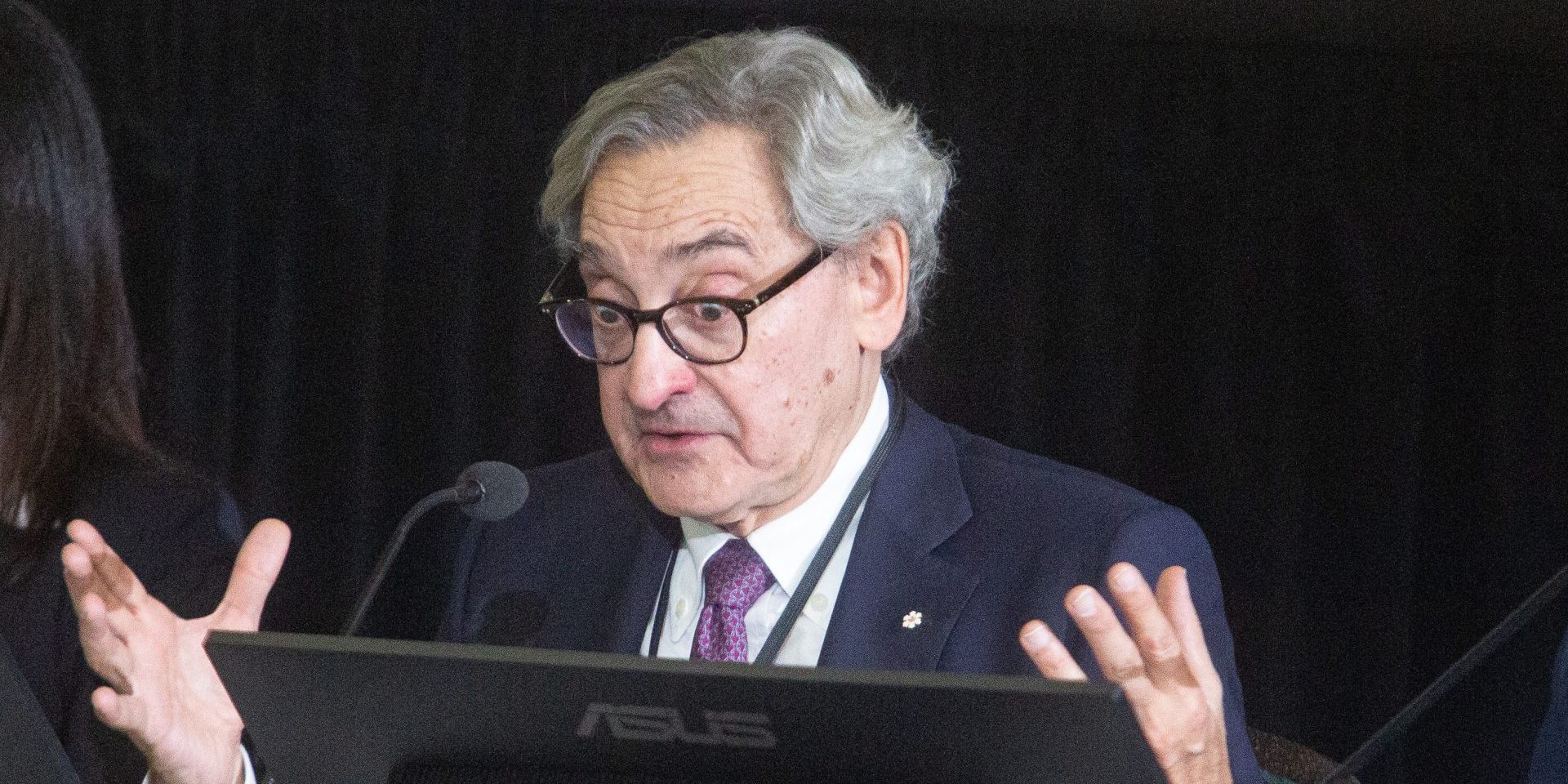
Prime Minister Mark Carney’s pick for his top public servant is a man capable of transformative change, with a track record of being “totally, relentlessly focused,” on his prior senior roles in both the private and public sector, observers say.
Michael Sabia’s appointment as the next Privy Council clerk and secretary to the cabinet, effective July 7, drew praise from both sides of the aisle, with prominent Tories congratulating Carney (Nepean, Ont.) on his choice to tap the soon-to-be former president and CEO of Hydro-Québec. Sabia also served as former finance minister Chrystia Freeland’s (University-Rosedale, Ont.) deputy minister from December 2020 until June 2023, among other impressive bona fides in both the private and public sector.
Carney said Sabia’s “leadership will be key” to the government’s “mission” to build “the strongest economy in the G7”
“Canada’s exemplary public service—with Mr. Sabia at the helm—will advance nation-building projects, catalyze enormous private investment to drive growth, and deliver the change Canadians want and deserve,” said Carney in a June 11 news release.
Don Drummond, an economist and former high-ranking Finance Department official, worked closely with Sabia on major tax reform legislation and the creation of the GST in the late 1980s. Then, Drummond was the department’s director of economic analysis and Sabia was director of tax policy.
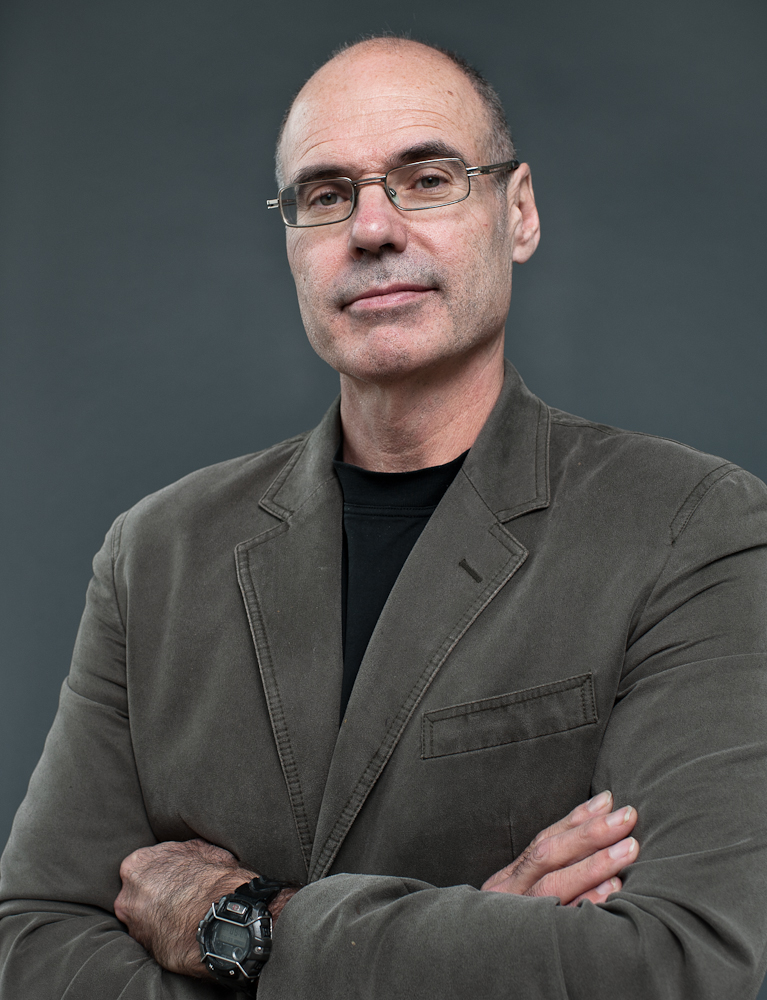
Drummond said Sabia is a person who is “on a mission, totally, relentlessly focused,” on his job.
“The overwhelming impression of everybody is how driven he was,” Drummond said. “He just drove, drove, drove. But he didn’t necessarily drive everyone else. He was very pleasant to work with. People who are driven can be unpleasant or bossy, but he wasn’t that.”
He recalled one moment when Sabia got up from his desk and fainted, but waved off suggestions that he should go see the Finance Department’s nurse.
“He said, ‘No, pop me back in my chair and give me an aspirin,’” Drummond recalled. “To me, that kind of says it all.”
Dan Lovell, a director at Sussex Strategies who lobbied the then-deputy finance minister, said Sabia has always been a disruptor and not one to maintain the status quo. In particular, Lovell cited Sabia’s time helming Canadian National Railway, where he oversaw the organization’s privatization.
“He’s going to disrupt things for the public service in what I would think could be potentially a harmonious match to a lot of things Prime Minister Carney has put in the window for priorities for his government,” he said. “He’s direct, he is no-nonsense, right to the point. He knows how to navigate complex and challenging situations to try and get restitution, but also resolve.”
Carney has emphasized the federal government won’t impede in “nation-building” projects, and Sabia, as head of the public service, is well-placed to deliver, Lovell said.
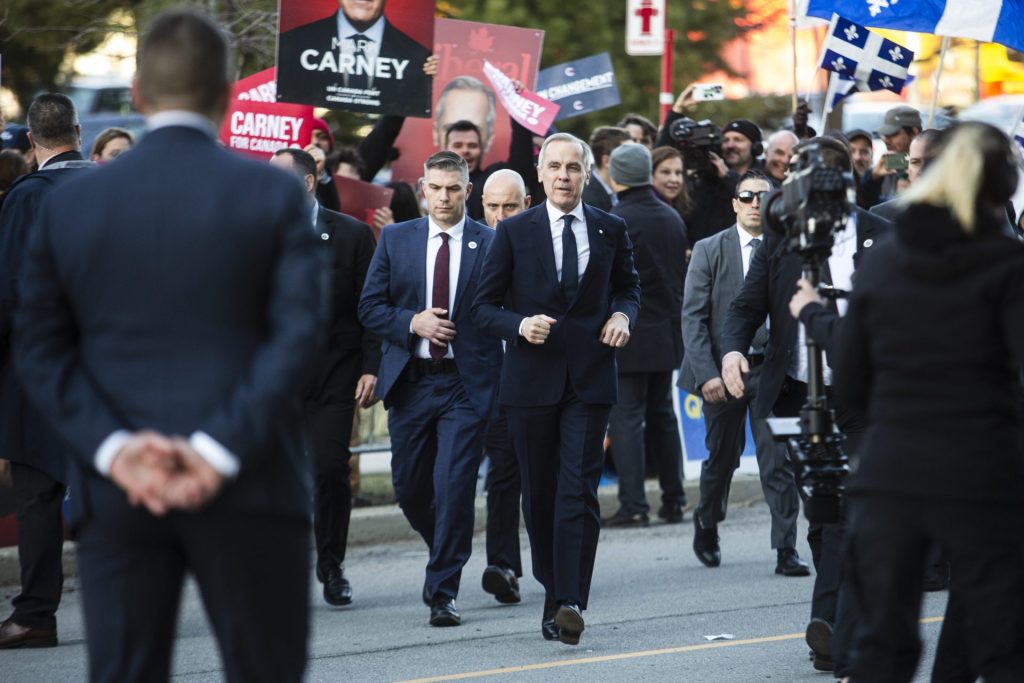
“No doubt, Sabia is coming in to ensure the federal government is not the bottleneck to any of these processes,” he said.
‘A lot to fix’ on Canada’s regulatory approach, says Sabia
Days before his Privy Council appointment, Sabia was on stage at The Globe and Mail’s conference, Intersect 2025, saying Canada has an “ambition deficit,” and seeming to echo some of Carney’s pet projects, including fast-tracking nation-building projects and streamlining regulations.
Sabia said fixing the economy will involve condensing layers of regulation to encourage foreign investment, and changing how businesses and governments partner with Indigenous communities, the Globe reported.
“We’ve got a lot to fix on the regulatory side,” Sabia said, arguing that rules such as energy emissions may have been implemented with good intentions, but have been piled on top of each other like “a stack of pancakes.”
“We need to stand back and say, ‘There’s got to be a simpler, better way,’” he said.
After Sabia was the Finance Department’s director-general of tax policy, he was deputy secretary to the cabinet in the Privy Council Office. Moving to the private sector, he held high-ranking positions with Bell Canada and Canadian National Railway, and more recently was president and CEO of the Caisse de dépôt et placement du Québec, and director of the Munk School of Global Affairs and Public Policy at the University of Toronto.
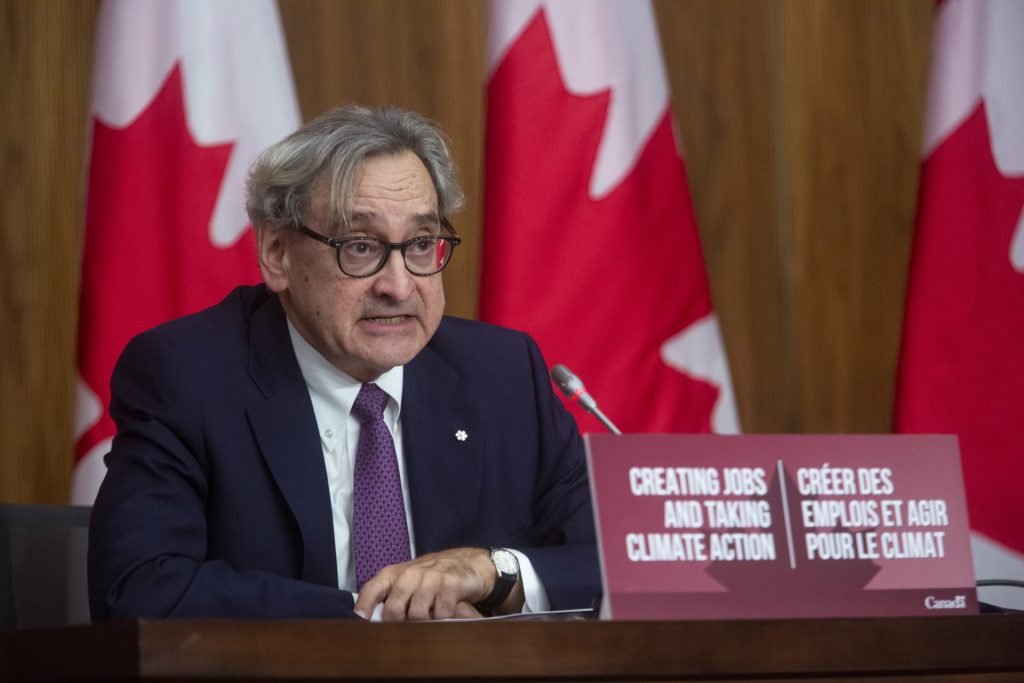
As Freeland’s deputy minister of finance, Sabia was tasked with re-invigorating a sluggish economy in the throes of the COVID-19 pandemic, a period which saw large increases in federal spending, and a ballooning deficit as governments around the world grappled with a once-in-a-generation public health crisis.
Carney’s announcement of Sabia’s appointment did not mention the latter’s time with the Canadian Infrastructure Bank, which was accused of “coziness” with consulting firm McKinsey & Company. The institution was intended to use $35-billion in public money to unlock four or five times as much private capital to finance infrastructure projects, but drew the ire of the political right for failing to meet these targets, and from the left for serving as a means to privatize public assets.
‘Buckle up’: Tories laud Carney’s clerk pick
Rona Ambrose, former Conservative interim leader from 2015 to 2017, praised Carney’s recent picks for top jobs on social media.
Ambrose said she was impressed by Carney’s selections for two of “top jobs supporting government” in both Sabia and the recent announcement of Marc-André Blanchard as the prime minister’s chief of staff, also starting in July.
“They are both leaving important positions in the private sector for public service, once again,” she said on X.
Jean Charest, leader of the Progressive Conservative Party of Canada from 1993 to 1998, and one-time Conservative Party leadership candidate in 2022, was also among several who congratulated Sabia on social media.
“There is no doubt that he possesses the skills and knowledge necessary to address the numerous challenges facing the federal government in the years to come,” the former Quebec premier said on X.
Former Conservative cabinet minister Lisa Raitt summed her thoughts in 10 short words: “Everyone, buckle up. Status quo is no longer an option.”
Sabia ‘capable of transformative change,’ says Page
Former parliamentary budget officer Kevin Page said he sees some similarities between Sabia and Carney, with both men having extensive backgrounds in finance, and both known for their strong work ethics.
“They’re not taking these jobs for the money, right?” said Page, founder of the Institute of Fiscal Studies and Democracy. “Or celebrity status. They want to bring about change.”
He called Sabia “a very strategic, very smart, very skillful kind of public servant,” and “a man capable of transformative change.”
Page remembers when Sabia was deputy secretary of the Privy Council Office, responsible for planning and priorities. In that role, Sabia would have become familiar with the clerk’s job in working closely with the prime minister in setting and enacting the government’s agenda.
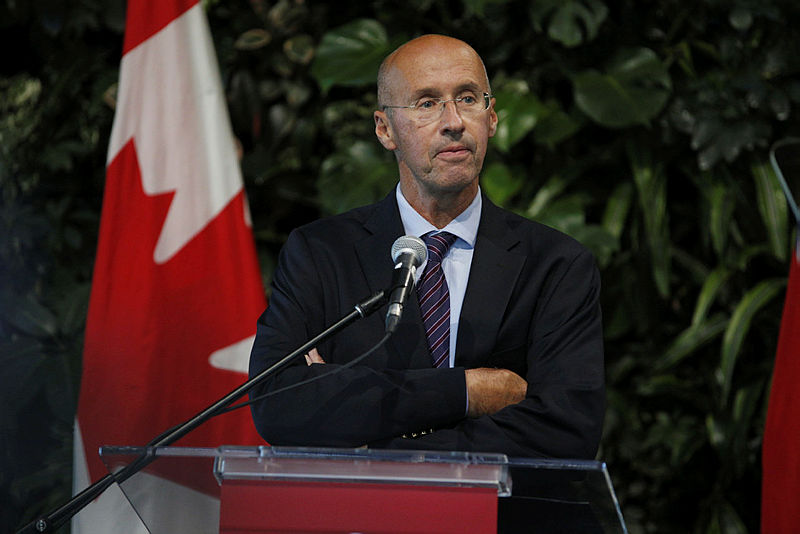
“I think he’s known around the system as a great communicator, very smart, very strategic,” Page said.
Page noted Carney could have tapped someone currently in the public service for the top job, which involves being secretary to the cabinet, working closely with the prime minister, and heading up the federal public service.
“From Carney’s perspective, he wants [someone] capable of change. And I think that’s a quality you need to have, is somebody that’s willing to take risks,” Page said.
“Again, he’s looking at his agenda, trying to bring about change, moving very quickly. He tapped somebody with that kind of skill set, very capable of bringing about change.”
Page said he imagines Carney—whom he described as confident, skilled, and demanding—would be a tough prime minister to brief on a daily basis.
“You really have to be well prepared every day,” he said. “He’s very smart, and he’s very demanding, and he will expect that from the people around him.”
Drummond said it will be mission critical for Sabia to keep trustworthy, competent people in his office, as he contends with juggling his relationship with Carney and leading the federal public service, something Drummond called “an extremely onerous job,” especially as further cuts to the bureaucracy seem inevitable. In March, new data revealed the number of federal employees shrunk for the first time in a decade.
“The more we get these multi-billion dollar initiatives: the personal income tax cut, defence spending…” Drummond said. “We’re going to have to have some very serious expenditure reduction; it’s going to affect a lot of jobs.”
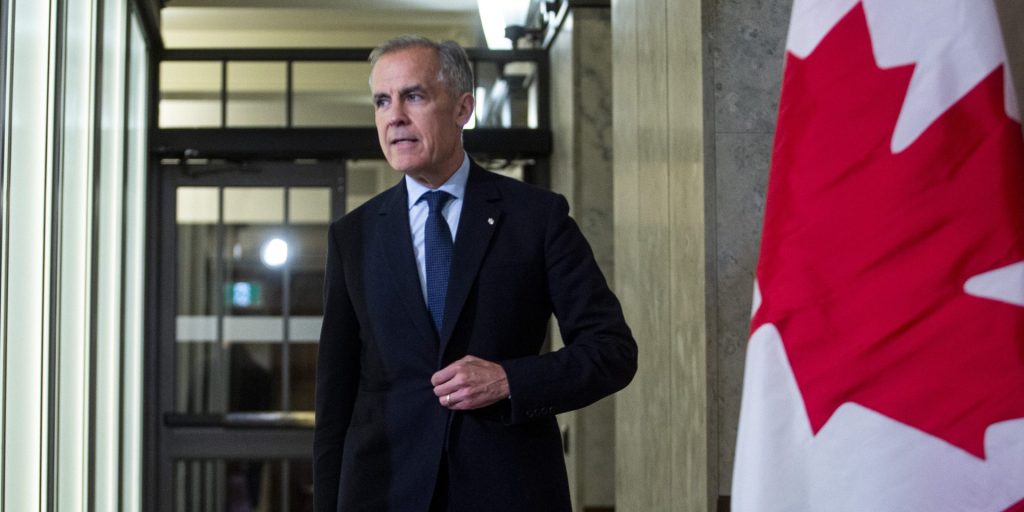
Carney has telegraphed a need to rein in government spending and focus on efficiency within the federal public service, while keeping the government’s spending increases to a rate of about two per cent per year, all while strengthening Canada’s economy and engaging in large-scale projects.
Drummond said Sabia should “get a lot of really good people” around him he can trust, “and get them to run a lot of these files.
“If they’re not people you can count on, he’d better get on that, or you could sink and disappear.”
Sabia will be in a critical role as the government is trying to, “in very short order, completely radically change the nature of the Canadian economy,” Drummond said. “But obviously, as the prime minister said, that’s why he picked him.”
mglass@hilltimes.com
The Hill Times






 LICENSING
LICENSING PODCAST
PODCAST ALERTS
ALERTS













